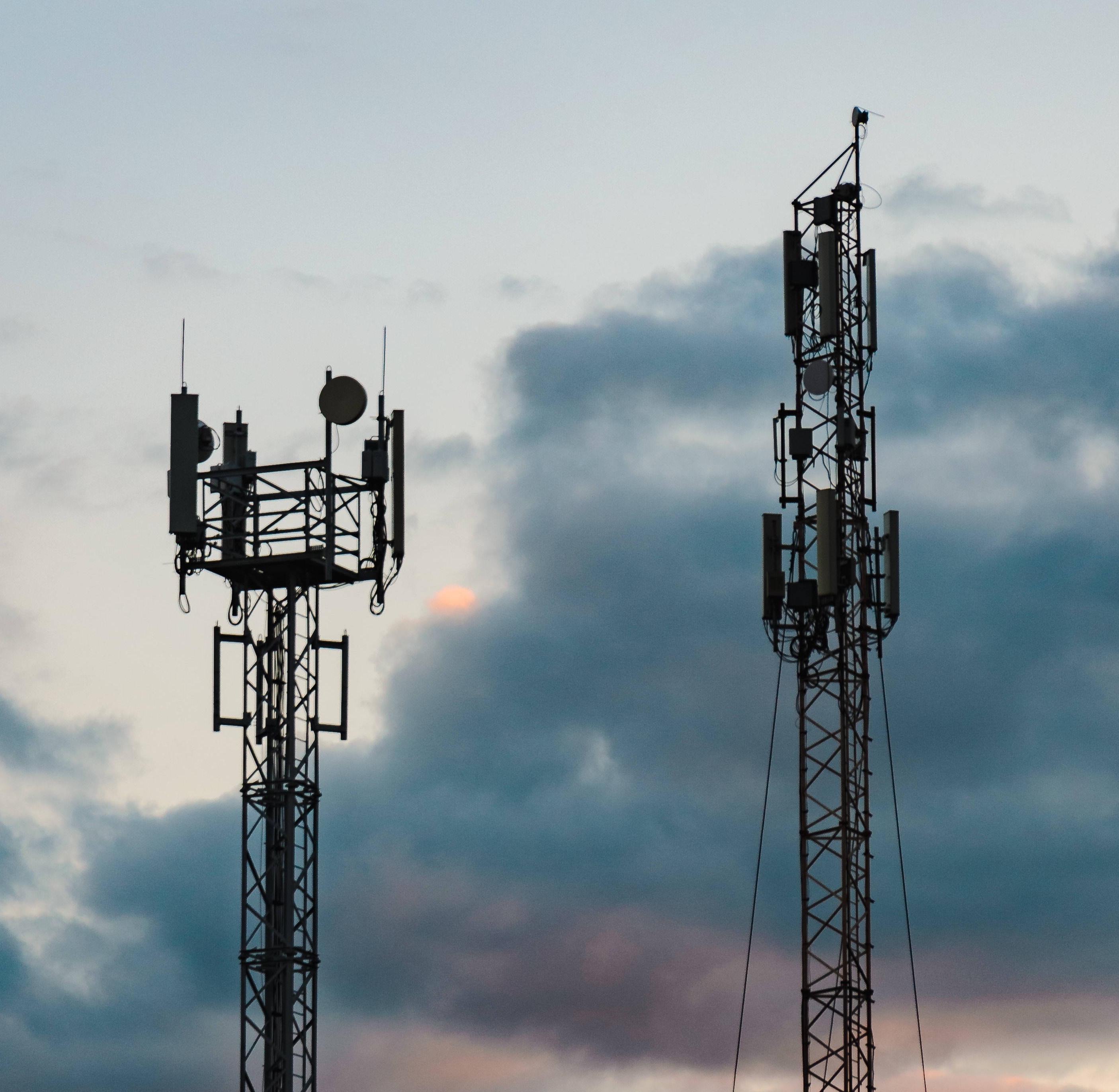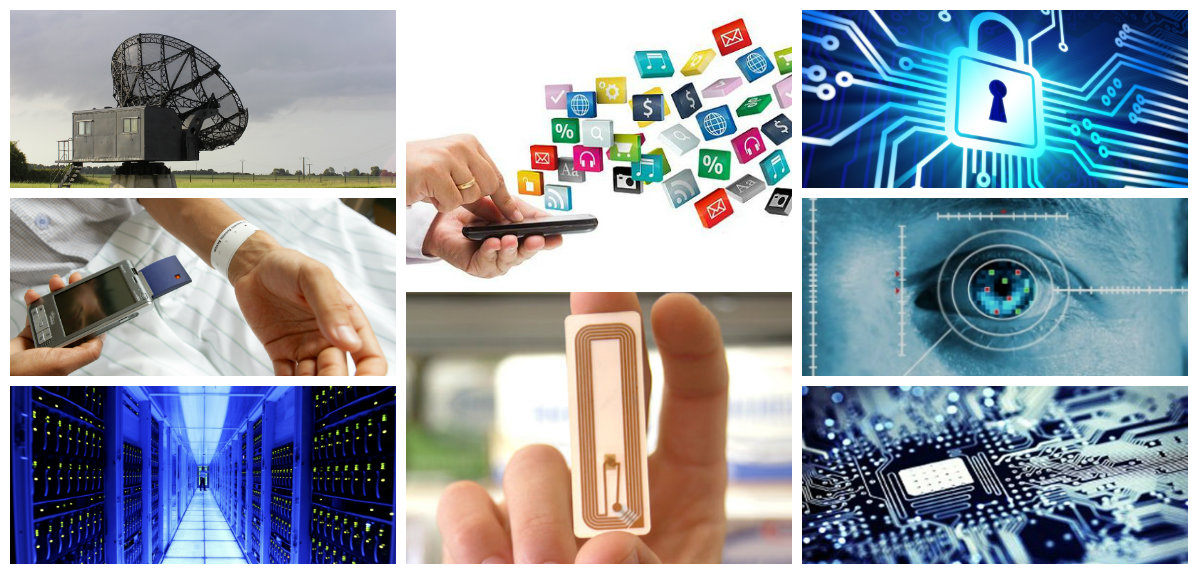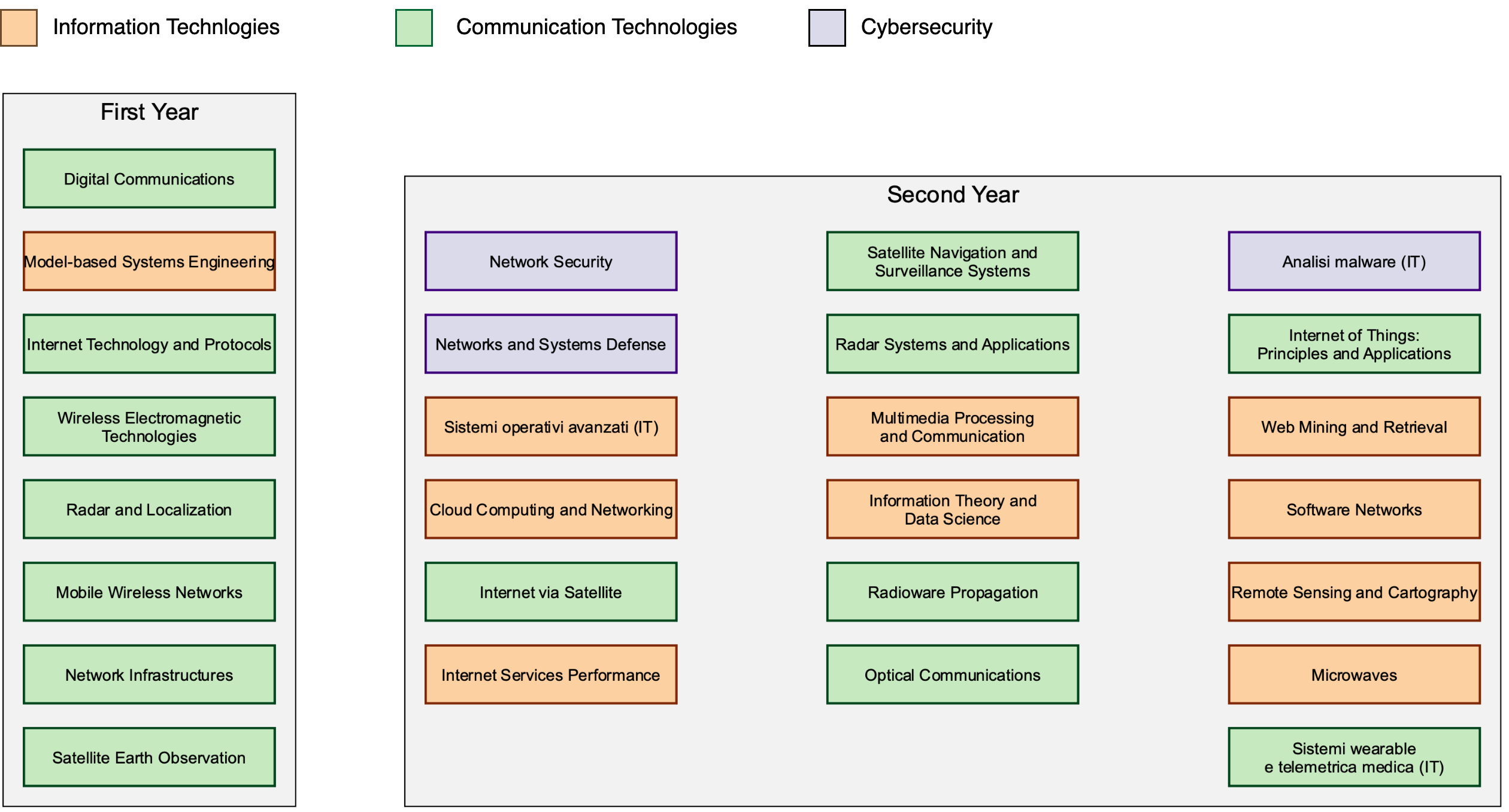
Programme Overview
The ICT & Internet Engineering Master Degree is a programme that focuses on the design, development, implementation and management of secure systems for communication and information processing. The corresponding technological sector is that of the Information and Communication Technologies (ICT), which plays a fundamental and strategical role in every modern society by enabling the technological progress in several areas, including health, environment and energy, transportation, commerce, public services, entertainment, national security, education and research.
After completing this degree in ICT & Internet Engineering, the graduates can choose from a variety of career paths. They are able to work as Network Engineers, Software Developers, System Analysts, Communication Specialists, Cybersecurity Specialists or ICT Project Managers.
They can find employment in sectors like Telecommunication companies, Software Development companies, IT Consultancy companies, Research organizations and Government agencies.
Course Information
Course Type:
Master Degree
Class:
LM-27: Telecommunication Engineering
Language:
English
Access:
Free access with verification of curricular requirements from Bachelor degree.
Department: Electronic Engineering
Learning Objectives
The master’s degree aims to provide students with fundamental skills in telecommunications, information technology, and security that will enable them to specialize in the ICT field. Students will become highly trained, flexible, and skilled professionals to address technical problems of ICT systems, services, and applications in the short term, which require a set of interdisciplinary knowledge provided by the master’s degree programme and in particular:
- technological and infrastructural knowledge in the field of telecommunications and global information systems;
- software programming skills for the development and management of ICT services and applications;
- methods for analyzing, acquiring and processing data;
- cybersecurity skills.


What you’ll learn
Here are some key aspects that will be covered the ICT & Internet Engineering study plan:
- Computer networks: design, implementation and maintenance of Local Area Networks (LAN), Wide Area Networks (WAN) and wireless. Network protocols, network security, routing and switching.
- Software development: basic programming languages for Web services and for the management of ICT infrastructures. Software design and coding, testing and debugging, software project management and software quality assurance.
- Telecommunications: communication systems for voice, video and data transmission. Telecommunication networks, mobile, satellite, optical communications, signal processing.
- Internet of Things (IoT): IoT technologies, such as sensor networks, data analytics, and application development.
- Information and communications Security: encryption techniques, network security protocols, vulnerability assessment and defence against hacking techniques.
Learning Path
The Master’s Degree (“Corso di Laurea Magistrale” in italian) in “ICT and Internet Engineering” includes courses and other formative activities for a total of 120 credits (“CFU”). The programme includes 4 mandatory courses respectively in the areas of telecommunications, mobile networks, remote sensing and software engineering. Other courses are mainly chosen by the student but still subject to approval by the course advisory board. Final thesis provides 18 credits
- During the first year the students will explore the fundamental concepts of telecommunications, mobile networks, remote sensing and software engineering.
- In the second year, they will explore many other concepts from different areas of interest, depending on the study plan decided by each student and their selection of optional courses.
Some of the possible study plans to choose from are Cybersecurity, Internet of Things and Cloud, Space Integrated Systems, Sensing Systems and Connectivity Infrastructures.
Many of the courses will include some laboratories with practical experiences where students can learn to put what they have studied into practice and in addition, they will have to opportunity to participate in several seminars to enrich their knowledge even more.


Job and Career Outlook
There are many different sectors in the computing and ICT industry that our graduates can look into for a job since ICT and Internet Engineering fulfils the need for a new wave of further job opportunities in the technology and service industry, both in the public and the private sector.
They could decide to work with companies that design, produce and install equipment, systems and infrastructures relating to the acquisition and transmission of information and their use in telematic applications; telecommunications companies providing remote sensing and radiolocation services; public telecommunications regulatory companies; air, land and naval traffic control companies.
Some of the possible career paths are:
Web-based Systems Analyst
Application Designer
ICT Technologies Expert
Software Developer
E-Health Specialist
IT Consultant
System Analyst
Network Engineer
Cybersecurity Specialist
Internet of Things Specialist
Big Data Scientist
Your own start-up

